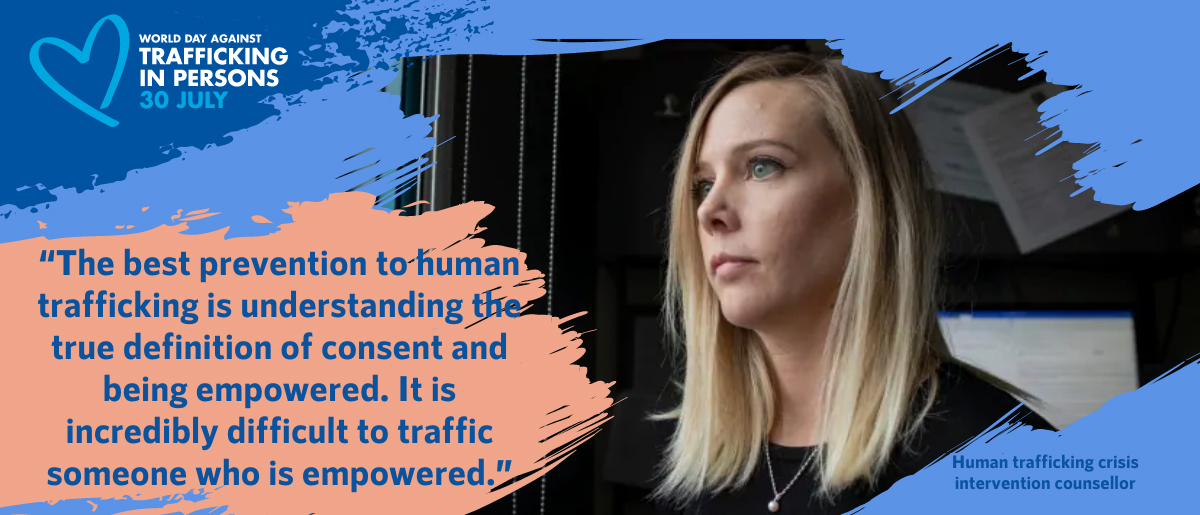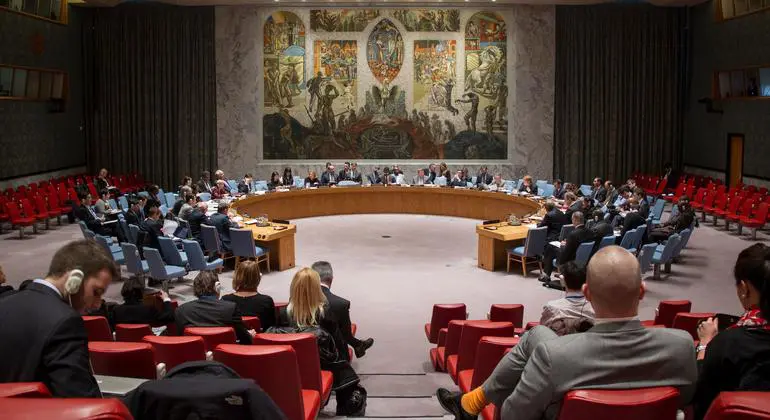
Karly had just arrived in a new city, she was homeless. She had no family or social support system and battled a serious drug addiction. This is when she met her traffickers. “They took the time to get to know me and my needs in a way no one had before,” explains Karly.
Her traffickers started to take care of her and “made it feel as if this was the best my life had ever been”. “They also told me that they would keep me safe and would never let anyone hurt me again.”
Once the traffickers had Karly’s trust, they forced her to work in the sex trade. “I hated every minute of it,” Karly says, “but as crazy as it sounds, my life still felt better than before.”

The traffickers targeted her up at a time when she had completely given up on herself and on life.
Karly now works as a crisis intervention counsellor at a regional support service for victims of human trafficking. She also works closely with the anti-human trafficking unit of the local police department and accompanies them to meet with potential victims. “I ensure that the individual gets the power of choice to choose whether to talk to the police or meet with me confidentially without any pressure to make a report to the police.”
Since this approach has been taken, there has been a 93 per cent increase in victims choosing to speak to the police and a 30 per cent increase in formal statements, Karly says.

Karly supports victims in cooperation with other agencies and organizations to ensure that their basic needs are met once they have left their traffickers. “If you cannot do this, they will go back and when they go back it may become much worse.” Karly says she listens to the unique needs of each survivor.

Karly is convinced that survivors can share unique knowledge and expertise to assist with developing appropriate programmes and best practices. “I have dedicated my life to bringing awareness to domestic sex trafficking and continue to share my story globally to help educate and support our youth as well as service providers, law enforcement, health care authorities and the broader community,” concludes Karly.
Further Information
endht.org – Campaign website





